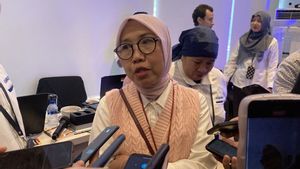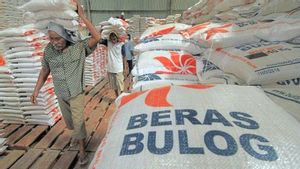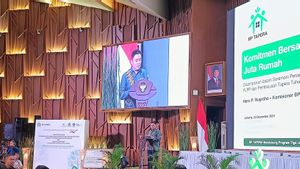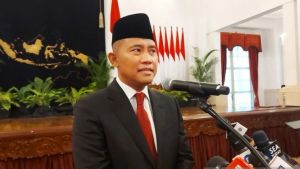JAKARTA - The Yogyakarta Consumer Institute (LKY) asks the public to avoid "panic buying" or buying a lot of food, especially rice, because of concerns about the scarcity of these commodities during the fasting month. "During the fasting month and before Eid al-Fitr, consumers are important to avoid 'panic buying' so that food scarcity does not occur," said LKY Chairman Siti Mulyani in a written statement, quoted from Antara, Saturday, March 16.
According to him, "panic buying" occurs when consumers buy excessively and uncontrollably, which can cause scarcity and increase prices significantly.
By implementing each of these principles, it is hoped that an ecosystem of sustainable, efficient, useful food and agriculture availability for the community and the environment is expected.
Along with the high price of rice, Siti advised the public to cook rice at a dose that suits their needs, even though they have excess rice stock.
"This aims to reduce waste of rice consumption, reduce food waste, and encourage wiser use of food resources," he said.
According to the research results of the National Research and Innovation Agency (BRIN), he said, the increase in rice prices was caused by massive land conversion factors, climate change, high fertilizer prices and over the age of farmers over 55 years.
Di DIY sendiri untuk beras Bulog (Stabilisasi Pasokan dan Harga Pangan/SPHP) dibanderol dengan harga Rp10,900 per kg, beras medium seharga Rp14,000 per kg, dan rata-rata beras premium dibanderol dengan harga mencapai Rp17,000-Rp18,000 per kg.
Therefore, LKY also encourages local governments to empower farmers by improving the quality of their crops, making appropriate and uniform planting and harvesting times, thereby reducing the impact of crop failure due to pest attacks and it will be easier to calculate regional food stocks.
また読む:
"It is also important to educate young farmers to be more interested in agriculture and agricultural intensification," he also said.
He emphasized the role of universities in increasing public knowledge, skills, and attitudes towards agriculture and food consumption.
"In addition, it is also recommended that universities be more active in networking with NGOs to educate the public and conduct research related to rice varieties that are more resistant to climate change," he said.
The English, Chinese, Japanese, Arabic, and French versions are automatically generated by the AI. So there may still be inaccuracies in translating, please always see Indonesian as our main language. (system supported by DigitalSiber.id)
















